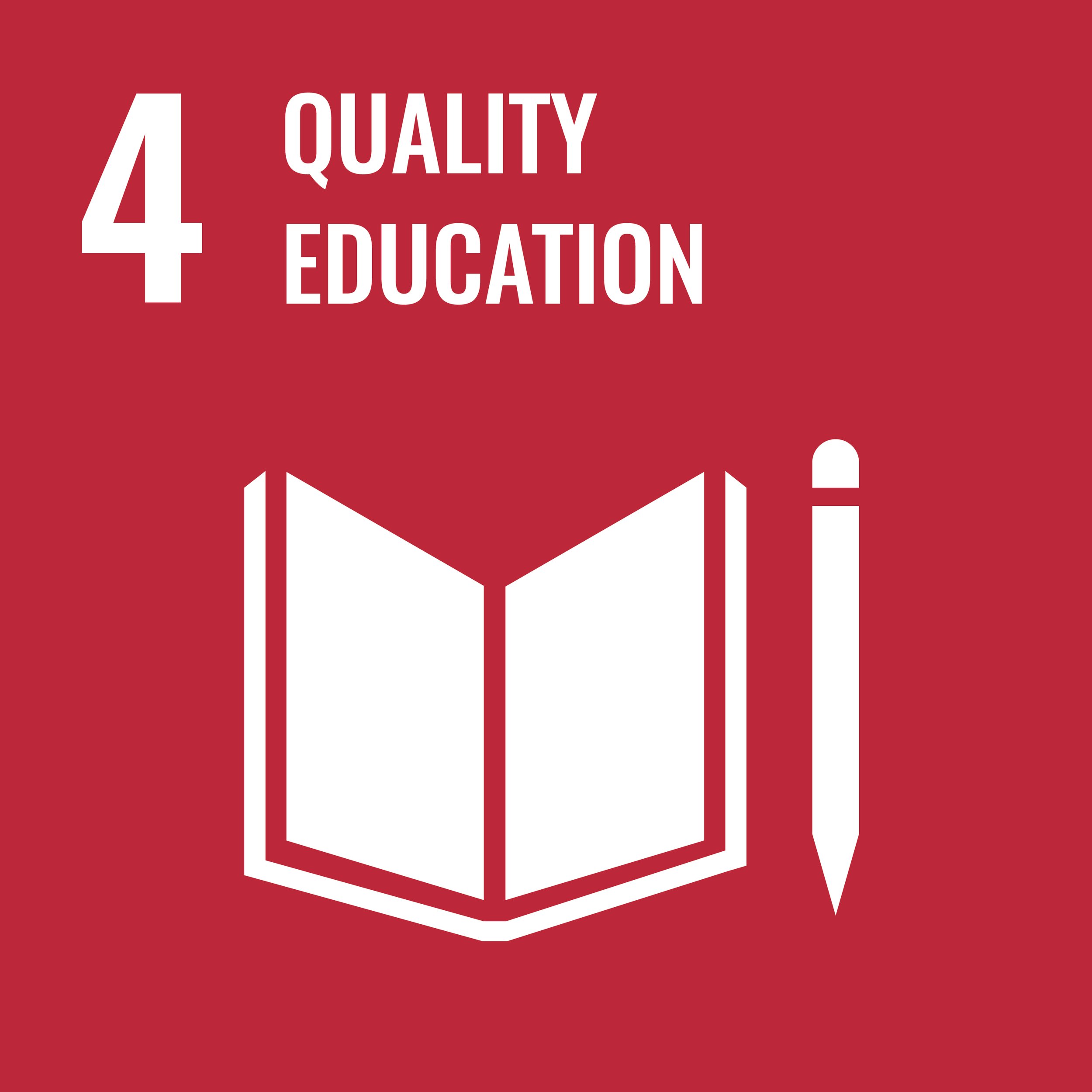Our objectives strategically align with those of the United Nation’s Sustainable Development Goals, which were established in 2015 with the aim of "peace and prosperity for people and the planet, now and into the future."
In particular, we focus on five of the U.N.’s 17 Sustainable Development Goals:
If no additional measures are taken, only one in six countries will meet SDG4 and achieve universal access to quality education by 2030. An estimated 84 million children and young people will still be out of school and an estimated 300 million students will still not have the basic numeracy and literacy skills they need to succeed in life. To deliver SDG4, education systems must be re-imagined.
The lingering effects of COVID-19, cost-of-living crises, trade tensions, uncertain monetary policy paths, rising debts in developing countries, and the war in Ukraine can each significantly set back global economic growth. Combined, these crises are placing the global economy under a serious threat.
Ongoing and new violent conflicts around the world are derailing a global path to peace and achievement of SDG 16. Onequarter of humanity lives in conflict-affected areas and as of May 2022, a record 100 million people had been forcibly displaced worldwide--more than double the number a decade ago. Citizens also face challenges accessing justice, basic services/legal guarantees and are generally underrepresented due to ineffective institutions. Moreover, structural injustices, inequalities and emerging human rights challenges are putting peaceful and inclusive societies further out of reach.
Core Values and Principles
Everything that we do is guided by a key set of guiding principles:
We embrace a Ecopreneurship and Peace Education Framework, which is a passion-led and nature-based approach that fosters practical life skills. This framework is characterized by its alternative, interdisciplinary, and holistic nature.
We actively promote unlearning, learning, and relearning processes to ensure a dynamic and adaptive educational experience. Our commitment extends to recognizing and nurturing the natural curiosity of human beings, especially younger generations, encouraging self-initiated learning with unlimited play and learning time.
Within our mixed-age learning environment, we emphasize learning through playing, enjoying, watching, observing, and listening, making each experience akin to nature's playground rather than traditional schools. We prioritize free-from-fear learning, steering away from coercive/controlled methods, and empower learners to establish rules through democratic processes.
Our curriculum aligns with the curriculum of life, devoid of rigid structures. Instead, we encourage planfulness and playfulness. At the core of our philosophy is the understanding that human beings and other species are interdependent, rooted in the shared elements of inter-struggle, inter-connection, and inter-relation.
We hold profound respect for the seven key natural elements—Soil, Water, Air, Fire, Ether, Thought and Spirit—as fundamental sources for humanity and other species. Ultimately, our mission is not only to impart knowledge but to serve humanity and the global ecosystem, shaping learners into ecopreneurs, peace builders, and effective problem-solvers for a sustainable future.
Our Philosophy
Saving the planet and building a peaceful global society can go hand-in-hand with innovation and financial opportunity.
All life is interconnected. When we address the global climate and biodiversity loss crises, we are helping build food security for local and Indigenous communities, for example. When we provide economic opportunities to marginalized communities, we are tapping new talent for innovative solutions to global conflict. And we know that earning a comfortable living in harmony with nature—rather than to its detriment—is not only doable, but critical.
At Live Peace Tech, we merge the principles of ecopreneurship and peacebuilding to reflect the interconnectedness of humanity’s most urgent societal challenges.
Aligning with the United Nations
Urgent and transformative action going beyond mere plans and promises are crucial. It requires raising ambition, covering entire economies and moving towards climate-resilient development, while outlining a clear path to achieve net-zero emissions. Immediate measures are necessary to avoid catastrophic consequences and secure a sustainable future for generations to come.
The world is facing a triple planetary crisis of climate change, pollution and biodiversity loss. The trend in forest loss, land degradation and the extinction of species is becoming worse, posing a severe threat to the health of the planet and people. Goal 15 will not be met without a dramatic shift in our relationship with our natural environment.







